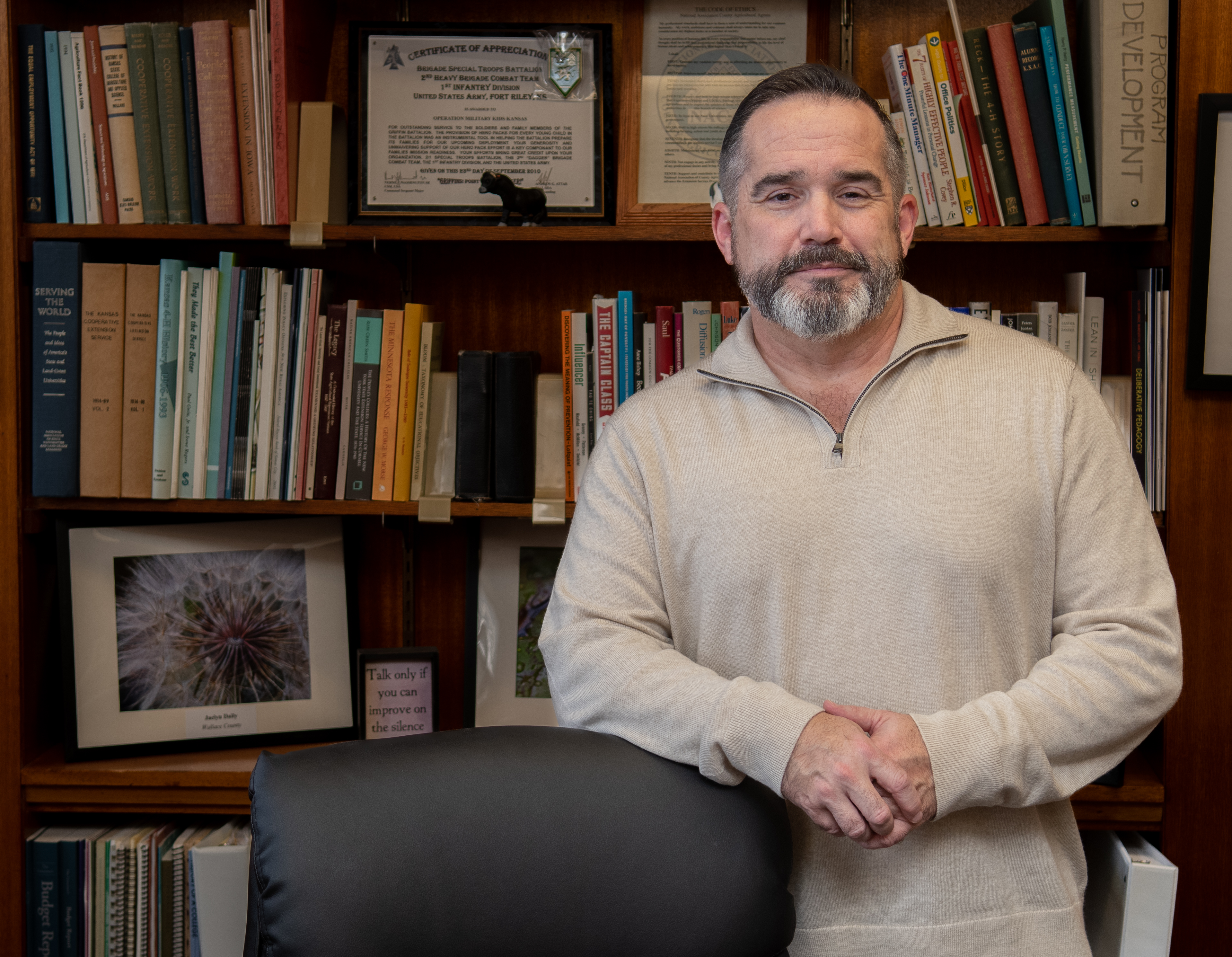June 11, 2024
Delivering on the Promise Update

The initial phase of Delivering on the Promise -- an effort by K-State Research and Extension and K-State’s Office of Engagement to gain feedback from community members at 84 sites in Kansas -- has concluded.
Tim Steffensmeier and I want to thank the 30 local units that hosted the 84 meetings with internal stakeholders, and extension users, and non-users at 28 sites across the state. We would also like to thank our community facilitators as well as those from Roots and Legacies who facilitated those meetings.
Local groups that hosted meetings included both rural and urban units across the state. There were single agent local units and local units with very large staffs hosting these discussions. Despite the differences and diversity of the local units, the participants responded consistently when asked about how extension and the rest of Kansas State University could better serve the people and communities of Kansas.
Operationally, our participants expressed surprise by all that extension offers. Some of the questions we heard:
• Once the rest of the university becomes active in engagement, how will we communicate how we can help people and communities?
• Will Kansas State University work with other education providers and organizations across the state?
Also, a consistent message from users and non-users is that the communication from stakeholders to and from the university should run through the local unit staff.
Some common concerns expressed by the participants include healthcare, childcare, senior care, economic development, entrepreneurism, broadband, and housing. This corresponds well with the conversations that occurred at President Linton’s regional community visits and with the information we are receiving via our K-State 105 initiative.
Agriculture and 4-H youth development programs were not mentioned much except in one more urban local unit. This does not mean that these topics were not important to the participants or that we should de-emphasize them. Many of the participants were from agricultural backgrounds, and many were engaged in our 4-H youth development programs.
We need to remember that the context of these discussions was not what extension does well, but how Kansas State University -- as a whole -- can better serve the people, industries and communities of Kansas.
This was the first phase of the Delivering on the Promise process. Additional phases include:
• Regional follow up discussions regarding the results of the original Delivering on the Promise discussions (summer).
• Sharing the results of the discussions with the Delivering on the Promise Advisory Team, made up of current and retired extension professionals and stakeholders, and soliciting their input regarding common themes and recommendations for action items (summer through fall).
• Meeting with government agency and stakeholder organization personnel to discuss the Delivering on the Promise (summer through fall).
• Convening a Global Café at our Annual Conference to discuss and gather ideas for how to address the issues brought forward by the Delivering on the Promise discussions (October).
• Follow up work group and task force activities to determine how to best achieve the ideas brought forward at Annual Conference in order to address the concerns and issues brought up during the initial and follow up Delivering on the Promise discussions and activities (winter).
The initial phase of Delivering on the Promise brought forward a lot of ideas about how Kansas State University can better serve the people and communities of Kansas. I have received input from local unit hosts that the discussions were exciting.
I hope that we build upon that excitement as we continue the Delivering on the Promise process. After all, Delivering on the Promise is about determining and addressing the needs of the people, industries and communities of Kansas. Isn’t that what extension and that Kansas State University land-grant mission is all about?